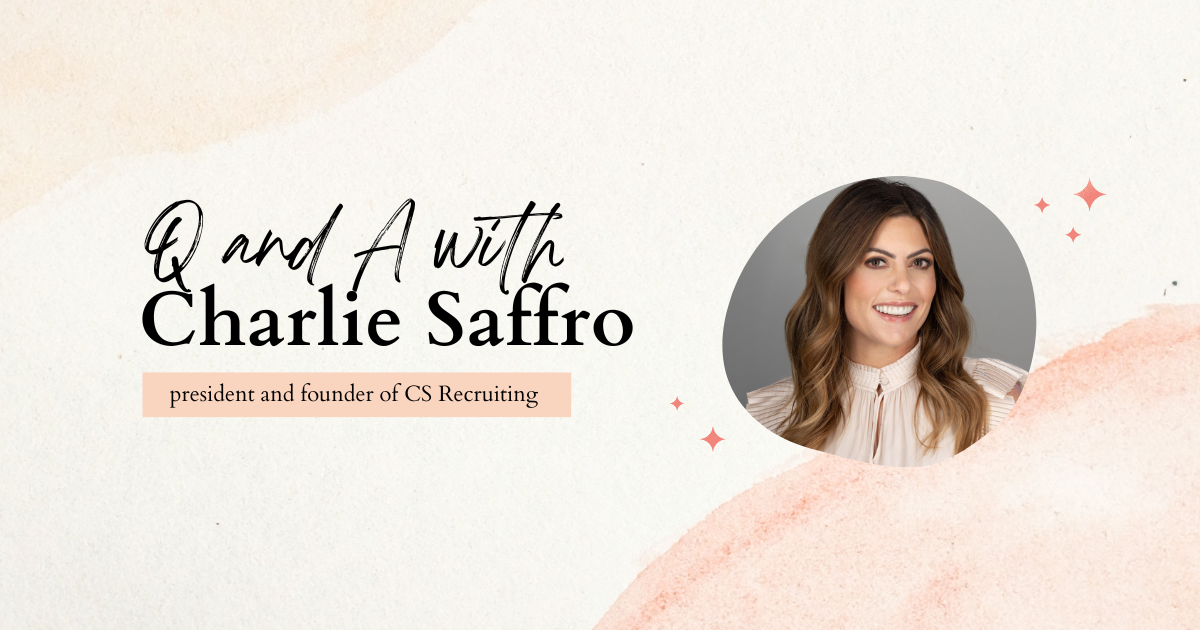


This interview is part of a series highlighting the contributions and career paths of women leaders making their mark in warehouse automation and the supply chain field.
To better understand the challenges facing the supply chain labor market, GreyOrange spoke with Charlie Saffro, the president and founder of CS Recruiting, which specializes in the space. As the leader of this 40-person, multi-million dollar organization, Charlie has witnessed a labor transformation during her 16 years working in the industry. In this three-part blog series, she shares insights on the challenges and opportunities women face, ways employers can do a better job attracting and retaining women, and how automation can enhance workplace flexibility for all.
Many of the roles with talent shortages are within the four walls of a warehouse facility. The talent pool for forklift drivers, pick-and-packers and even inventory counters are harder to fill post pandemic. These are onsite positions that might have funky second-shift schedules that require someone to work outside of the traditional nine to five.
CS Recruiting focuses on professional roles in the supply chain, with expertise in executive leadership and any other permanent corporate role that influences the supply chain. These roles might include a warehouse GM or Director of Distribution and we’re actually seeing a surge in talent for niche positions like these.
The talent market right now is unpredictable and unprecedented. In the past few years, hiring companies had the upper hand. Then it shifted to job seekers being more in control. Now we’re back where the companies are in the driver’s seat when it comes to the supply of jobs versus the demand for talent. So last year we had more companies hiring than people, with the whole great resignation, and now we have more people looking than companies hiring. And that’s obviously a result of layoffs and budget cuts. What I sense is a lot of fear of a looming recession.
Everyone is looking for salespeople. They want revenue producers and direct contributors. While this is not unique to today’s market, there definitely is a correspondence between the economic conditions and the desire to hire more sales talent. Even in the freight market, a lot of companies are feeling pretty operationally sound right now, but they will find room in their budget if they can find a rainmaker. Some companies need to hire salespeople to drive their business and stay afloat. Some companies are opportunistic and will hire a good salesperson when they can. Regardless, the hunt for qualified sales talent seems to be industry agnostic.
The other thing that’s on people’s minds right now is this notion of highlighting more women as case studies to show their success and path within the company. Organizations can use this strategy as part of their recruiting efforts to encourage more women to identify and relate to opportunities they might consider. Women are being encouraged to speak up and build their personal brand through thought leadership and storytelling. I think that’s probably the quickest way to get more women in this industry – to share stories of other women, so women can look at that and say, “wow, I never considered a career there unless I’ve seen someone else paved the way.”
62% of supply chain leaders in a recent Gartner survey are investing in policy and communication tools for seamless in-person, hybrid and remote work relationships.
We’re starting to see more and more companies really build what we call a talent brand. A talent brand is not the traditional product/service brand that’s used to target prospective customers. Talent brands are promoted during recruiting efforts with a goal of creating attention and interest for job seekers. Companies highlight their talent brands in different ways. Some organizations may have a video featuring current team members to share why they joined the team. Talent brands may also be marketed through press releases and news around employee events, like celebrating an anniversary or promotion. The whole idea is to showcase different demographics on the team, whether it’s a face or a case study to help make connection points. By sharing the story of a successful employee who started at entry level and is now the vice president creates interest and can draw in new talent that represent the company’s values and philosophies.
To help create a more vibrant and diverse labor pool, GreyOrange was a sponsor of the Women in Supply Chain event where Marie McCarthy, Chief Commercial Officer at L.L.Bean, was honored.